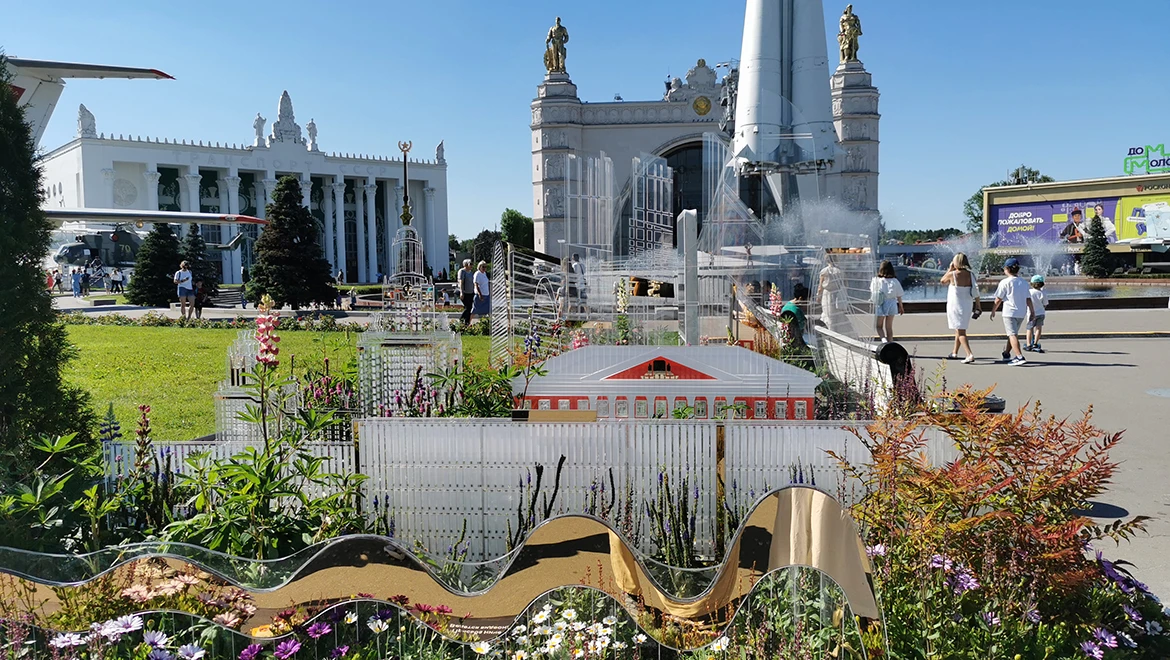Kurai or Ural rippensame. Republic of Bashkortostan
Kurai is a fairly common plant in the coniferous and deciduous forests of the Urals, belonging to the umbellifer family, with a hollow stem. The kurai flower is considered a symbol of Bashkiria and can be seen on the flag and coat of arms.
Why is the kurai flower a symbol of Bashkortostan?
According to legends, the united Bashkir people emerged from seven main clans. The kurai flower is a symbol of friendship, and its seven petals represent the seven different ethnic groups that formed the Bashkir people as an ethnic group.
The union of the clans consisted of the largest tribes: Burzyans (бөрйән), Usergans (үсергән), Tangauers (түңгәүер), Kypsaks (ҡыпсаҡ), Katays (ҡатай), Mins (мең), and Tabyns (табын). Although, in reality, there were many more (about 45).
The plant itself, listed in the Red Book, and the musical instrument made from it are a great source of pride for Bashkiria. Kurai is a wind musical instrument. It resembles a flute both in appearance and playing technique. Externally, it is a long pipe with holes for air, located on the body. The length of the instrument ranges from 50 to 80 cm. The sounds of the kurai could be heard at weddings and celebrations. Today, entire ensembles in Bashkiria play it.
The instrument gets its name from the plant it is made from. Russian ethnographer S.G. Rybakov wrote: "The sounds of this instrument — quiet, melancholic, and soulful — convey well the dreaminess of Bashkir melodies."
The origin of the instrument is reflected in a legend that tells of a young man who escaped a terrible death. Finding himself in a dense forest, the young man wandered, surrounded by dangers, but did not despair. He came across a flower with a long stem, from which he crafted a pipe and began to play. The playing saved the young man, led him out of the forest, and the melody defeated evil. There are many variations of this legend, in some, the young man wins the heart of a beauty thanks to the kurai, in others, he escapes from an evil khan. But regardless of the legend, the fact remains — the kurai became a constant companion of the Bashkirs as a symbol of deliverance from suffering.
According to tradition, only men — kuraists — play the kurai, and their performances are always accompanied by spoken prose, which can be a legend or a tale.
Perhaps the most famous virtuoso kuraist today is Robert Yuldashev, a laureate of dozens of international creative festivals and a winner of several competitions.
The surviving melodies of the kurai have very ancient traditions and history. In ancient documentary sources, in the records of Arab travelers, it is mentioned that between certain rivers live the Bashkir people who have got the kurai. It is not just a musical instrument, but a symbol of the traditions and culture of the Bashkir people.
Along with the RUSSIA EXPO, the flower festival is also coming to an end.
The "Future in Flowers" festival continues at the RUSSIA EXPO, where unique flowerbeds from all regions of our country can be seen at the "Space" pavilion until July 8.
The RUSSIA EXPO concludes on July 8, and with it, the flower festival will also come to an end.





